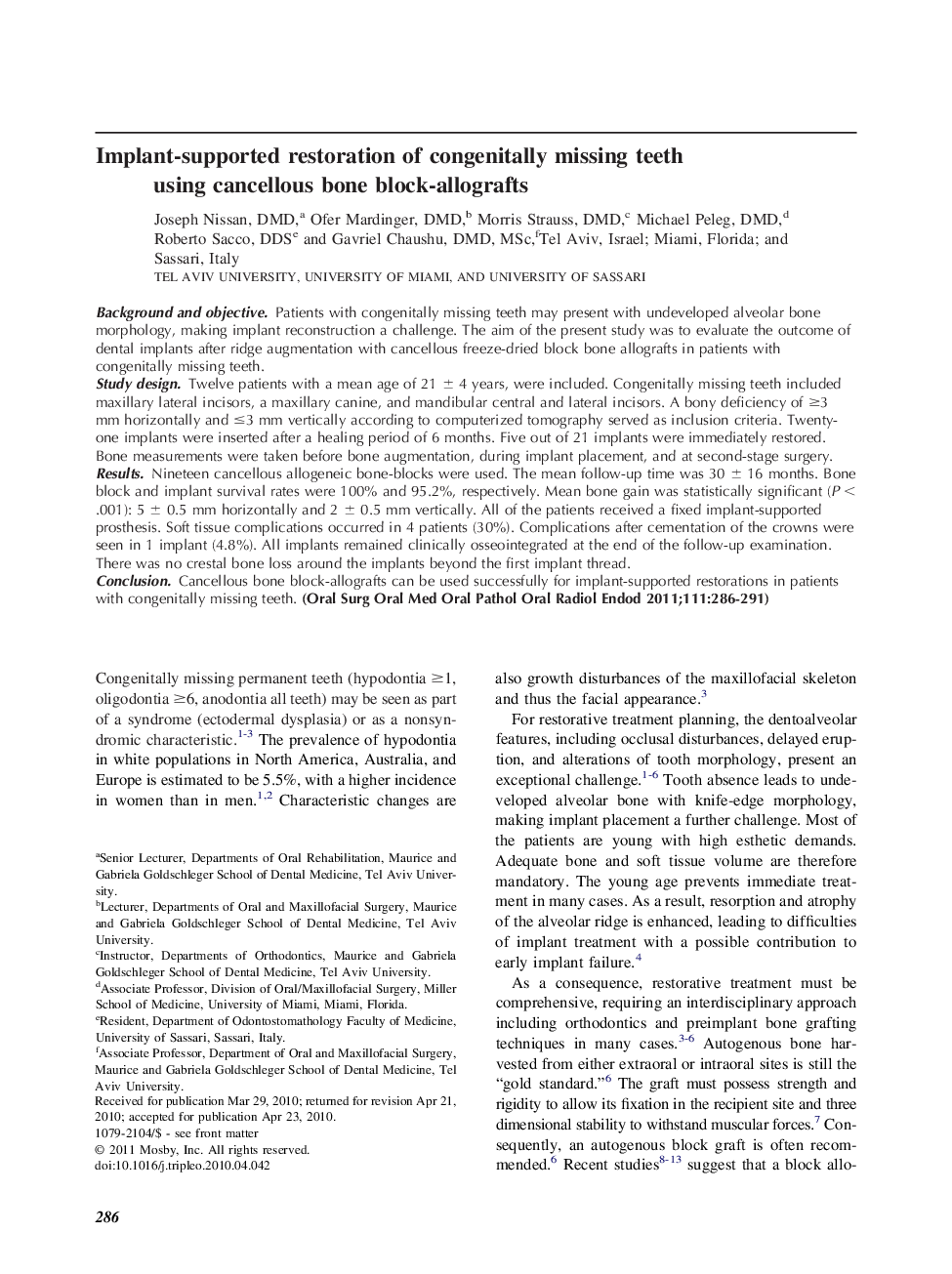| Article ID | Journal | Published Year | Pages | File Type |
|---|---|---|---|---|
| 6059920 | Oral Surgery, Oral Medicine, Oral Pathology, Oral Radiology, and Endodontology | 2011 | 6 Pages |
Background and objectivePatients with congenitally missing teeth may present with undeveloped alveolar bone morphology, making implant reconstruction a challenge. The aim of the present study was to evaluate the outcome of dental implants after ridge augmentation with cancellous freeze-dried block bone allografts in patients with congenitally missing teeth.Study designTwelve patients with a mean age of 21 ± 4 years, were included. Congenitally missing teeth included maxillary lateral incisors, a maxillary canine, and mandibular central and lateral incisors. A bony deficiency of â¥3 mm horizontally and â¤3 mm vertically according to computerized tomography served as inclusion criteria. Twenty-one implants were inserted after a healing period of 6 months. Five out of 21 implants were immediately restored. Bone measurements were taken before bone augmentation, during implant placement, and at second-stage surgery.ResultsNineteen cancellous allogeneic bone-blocks were used. The mean follow-up time was 30 ± 16 months. Bone block and implant survival rates were 100% and 95.2%, respectively. Mean bone gain was statistically significant (P < .001): 5 ± 0.5 mm horizontally and 2 ± 0.5 mm vertically. All of the patients received a fixed implant-supported prosthesis. Soft tissue complications occurred in 4 patients (30%). Complications after cementation of the crowns were seen in 1 implant (4.8%). All implants remained clinically osseointegrated at the end of the follow-up examination. There was no crestal bone loss around the implants beyond the first implant thread.ConclusionCancellous bone block-allografts can be used successfully for implant-supported restorations in patients with congenitally missing teeth.
